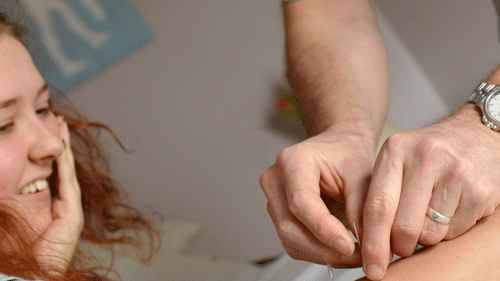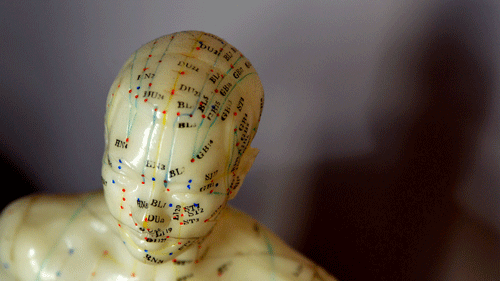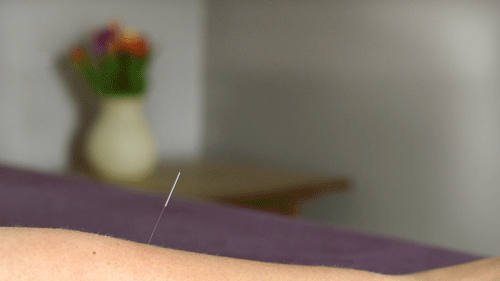|
What is acupuncture?
Acupuncture is a holistic approach to health based on more than 2,000 years of developments and refinements in the East. Western-style medical acupuncture is a more recent development practised predominantly by doctors and physiotherapists who use a more limited range of acupuncture techniques on the basis of a Western medical diagnosis. Traditionally, acupuncture is a holistic approach to the management of disease as well as the maintenance of health. It is a complete system of medicine. The skill of an acupuncturist lies in their ability to make a traditional diagnosis from what is often a complex pattern of disharmony. The exact pattern and degree of disharmony is unique to each individual, and with traditional acupuncture, will be treated as such with a personalised treatment plan. Where does acupuncture come from? The Chinese and other Eastern countries have been using acupuncture to restore, promote and maintain good health for around 2,500 years. Stone needles were originally used, and later bronze, gold and silver needles. The first written medical account of acupuncture was The Yellow Emperor's Classic of Internal Medicine, which dates from about 300BC. Acupuncture is rooted in the Taoist philosophy of change, growth, balance and harmony, and this text outlines the principles of natural law and the movements of life - Yin and Yang, the Five Elements, the organ system and the meridian network along which acupuncture points are located. Amazingly, these records also contain details of pathology and physiology that provide the theoretical foundation for acupuncture today, 2,000 years later. What can acupuncture treat? Acupuncture is a system of healing which, although often described as a means of pain relief, is in fact used to treat people with a wide range of illnesses. Its focus is on improving the overall well being of the patient, rather than merely the isolated treatment of specific symptoms. According to traditional Chinese philosophy, our health is dependent on the body's motivating energy - known as Qi - moving in a smooth and balanced way through a series of meridians (channels) beneath the skin. How does acupuncture work? Qi consists of equal and opposite qualities - Yin and Yang - and when these become unbalanced, illness may result. By inserting fine needles into the channels of energy, an acupuncturist can stimulate the body's own healing response and help restore its natural balance. The flow of Qi can be disturbed by a number of factors. These include emotional states such as anxiety, stress, anger, fear or grief, poor nutrition, weather conditions, hereditary factors, infections, poisons and trauma. Sometimes physical over use, a knock or strain can cause things to block. The aim of acupuncture in treating the whole person is to restore the equilibrium of the individual in all respects: physical, mental and emotional. Some acupuncture points are selected for their name, many are very beautiful, others pragmatic. Hasty Pulse for someone always on the go, Abdomen Knot for a natural worrier whose stomach gets anxious, Listening Palace for ear problems or someone who knows what is right for them but can't listen to their own advice, Cloud Gate for gloom that descends suddenly for no reason. Acupuncture can treat a wide range of physical or mental/emotional conditions. Each meridian is responsible for different parts of the whole person at all levels. Having these put back in balance is handing back control to you. Today's acupuncture needles are single-use, sterile, flexible and comfortable to receive treatment with. Having acupuncture is nothing like you will have experienced with any general needles. Mostly patients feel very relaxed and enjoy their time in the treatment room, as well as the beneficial effects of the treatment. We are accepted by the blood donor organisation and can provide you with a certificate to take along. If you are receiving medication, this should be continued. Once you are in less need, this can be reviewed if you wish, with your doctor, and your acupuncturist can then help you to reduce medication as applicable. How will I feel after acupuncture? Usually very relaxed and calm. Occasionally you may feel tired or drowsy for a few hours after treatment, in which case you are advised not to over exert yourself as you absorb the effects of the treatment. The Practitioners We treat a wide range of patients and symptoms. Free 15 minute appointments can be booked with either of us if you would like to discuss treatment or have more information. We cover the whole week Monday - Friday and work into the evenings so treatments are available at convenient times for most people. The two practitioners at this clinic have been in practice for more than 20 years combined, both at this clinic and from doctors surgeries, so are used to and happy to work alongside western medicine. Their experience is backed up by 5 years initial training to become fully qualified in both main branches of acupuncture and an ongoing interest in continuing their professional development. They are full members of their professional association, the British Acupuncture Council, a strict regulatory body. Most doctors now recognise the value of acupuncture and many recommend it to patients. The World Health Organisation, British Medical Council and House of Lords support acupuncture as a mode of treatment. A large number of people in the U.K. have been using acupuncture for many years, and by word of mouth & press reports recognition of its effectiveness has spread. Research programmes to test the effectiveness of acupuncture have produced outstanding results over a wide range of symptoms and also on animals. Internal causes of disease These relate to a personal internal emotional state. Traditionally, Chinese physicians used the elements in nature that they saw around them as a model to better understand the human condition. Using this model, the elements Fire, Earth, Metal, Water, & Wood can be instructive to the practitioner to help them to see with clarity which aspect of a person is out of balance and what needs to be done to address that particular problem. Frequently when we treat people with acupuncture they will remark how much better they feel in themselves. Often in the first weeks of treatment people will notice that if the main symptom has not gone yet they can see/feel the treatment is working because of all the other health benefits recognised by themselves or others. External causes of disease These relate to the adverse effect on a person of exposure to their particular environment. Often a person's constitution will have made them especially susceptible to damp, heat, dryness, wind or cold. On a gross level we all know that extreme exposure to cold or damp or heat will make us ill. What the Chinese recognised was that in a subtler perhaps slower way these external influences affect our health. A straightforward and easy to follow example of this would be the ability of a draught (wind) to give one a stiff, painful neck. If exposure to the draft continues and the neck is left untreated, that stiff, painful neck may lead to headaches (creating more stress and less chance of the neck resolving itself), or it may spread the other way causing shoulder or back problems. Acupuncture is well placed to treat these kinds of conditions as well as much less obvious ones besides. Further information on: British Acupuncture Council UK's main regulatory body for the practice of traditional acupuncture. |
|


